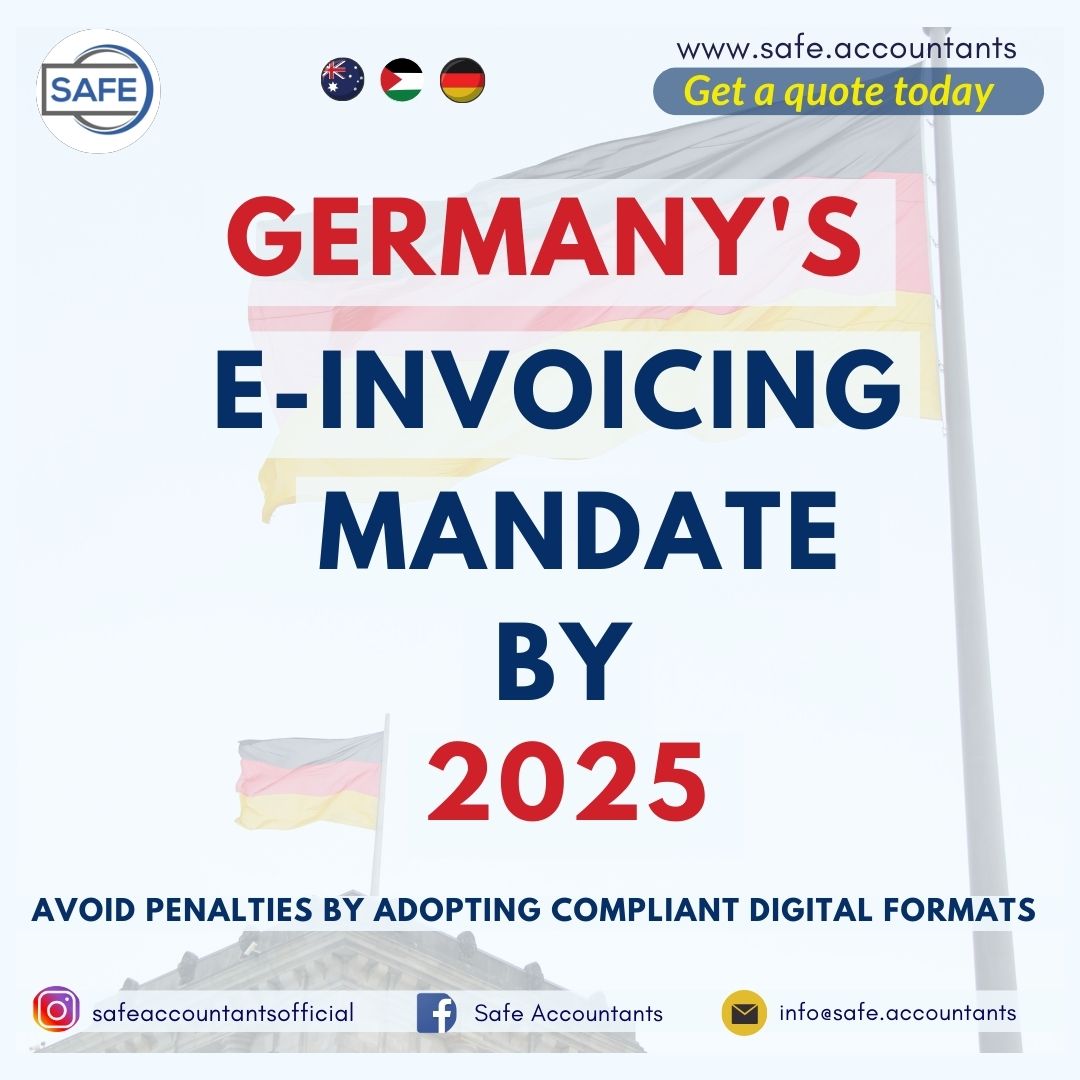
Financial Planning for Startups in Germany: A Roadmap to Success
October 4, 2024
Proposed Changes to the Equity Method by IASB: What You Need to Know
October 20, 2024
Background:
In response to significant VAT fraud across the EU, including a €93 billion loss in 2020, the European Commission proposed the “VAT in Digital Age” (ViDA) initiative to modernize VAT systems through digitalization. Germany is implementing mandatory e-invoicing for domestic B2B transactions starting January 1, 2025, in line with this effort to improve compliance and transparency.
What is E-Invoicing?
E-invoicing refers to invoices issued, transmitted, and received in a structured electronic format. Germany’s new law requires compliance with the EU-standard CEN 16931. Paper and PDF invoices will be phased out, with structured formats becoming mandatory for B2B transactions between businesses established in Germany. This shift eliminates the need for consent to issue e-invoices, which will streamline the invoicing process. However, businesses must ensure their ERP systems can handle these formats.
Who Must Comply?
The regulation applies to entities established in Germany that issue invoices for domestic B2B transactions subject to VAT. This includes both legal persons and fixed establishments involved in sales. Companies registered for VAT in Germany but without an establishment in the country are exempt from the e-invoicing requirement.
Transitional Provisions and Exceptions
A phased approach will gradually introduce e-invoicing:
- Between 2025 and 2026, paper or non-compliant invoices can still be used with the recipient’s consent.
- By 2027, non-compliant invoices can only be issued under specific conditions, such as turnover below EUR 800,000 or using EDI procedures.
- From 2028, all invoices must meet e-invoicing requirements, fully transitioning to structured digital formats. Small-value invoices (up to EUR 250) and tickets can continue in paper format until 2028.
Sanctions for Non-Compliance
Failing to comply with the new e-invoicing requirements can result in fines and the denial of input tax deductions. Each improperly issued invoice may result in fines up to EUR 5,000, and businesses may face penalties in the central trade register.
Preparing for E-Invoicing
To ensure compliance by January 2025, businesses should assess their systems for processing e-invoices and adopt the necessary IT solutions. Early action is critical to avoid disruptions, penalties, and input tax deduction denials. This preparation includes analyzing business transactions, aligning ERP systems with CEN 16931 standards, and ensuring the capacity to both issue and receive structured invoices.
By making these changes, businesses will not only comply with the new laws but also improve operational efficiency and safeguard against fraud.
Conclusion
Germany’s transition to mandatory e-invoicing reflects broader EU efforts to digitize VAT processes and reduce fraud. Businesses must take proactive steps to prepare for the upcoming changes, ensuring compliance by 2025 and full adaptation by 2028.

